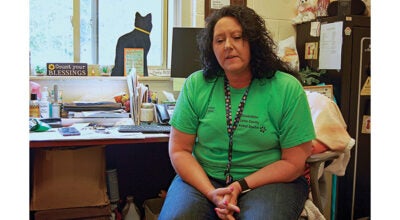Final days of hajj and Eid festival impacted by coronavirus
Published 4:01 pm Friday, July 31, 2020
|
Getting your Trinity Audio player ready...
|
DUBAI, United Arab Emirates (AP) — Small groups of pilgrims performed one of the final rites of the Islamic hajj on Friday as Muslims worldwide marked the start of the Eid al-Adha holiday amid a global pandemic that has impacted nearly every aspect of this year’s pilgrimage and celebrations.
The last days of the annual pilgrimage to Mecca in Saudi Arabia coincide with the four-day Eid al-Adha, or “Feast of Sacrifice,” in which Muslims slaughter livestock and distribute the meat to the poor.
The pandemic has pushed millions of people around the world closer to the brink of poverty, making it harder for many to fulfill the religious tradition of purchasing livestock.
The hajj pilgrimage has also been drastically impacted by the virus. Last year, some 2.5 million pilgrims took part, but this year as few as 1,000 pilgrims already residing in Saudi Arabia were allowed to preform the hajj.
The Saudi Health Ministry said there have been no cases of the COVID-19 illness among this year’s pilgrims. The government took numerous precautions, including testing pilgrims for the virus, monitoring their movement with electronic wristbands and requiring them to quarantine before and after the hajj. Pilgrims were selected after applying through an online portal, and all had to be between the ages of 20 and 50 years-old.
Just after dawn on Friday, small groups of pilgrims — masked and physically distancing — made their way toward the massive multi-story Jamarat Complex in the Saudi valley area of Mina. There, the pilgrims cast pebbles at three large columns. It is here where Muslims believe the devil tried to talk the Prophet Ibrahim, or Abraham, out of submitting to God’s will.
Muslims commemorate the prophet Ibrahim’s test of faith by slaughtering livestock and animals and distributing the meat to the poor.
During the last days of hajj, male pilgrims shave their heads and remove the terrycloth white garments worn during the pilgrimage. Women cut off a small lock of hair in a sign of spiritual rebirth and renewal.
The hajj, both physically and spiritually demanding, intends to bring about greater humility and unity among Muslims. It is required of all Muslims to perform once in a lifetime.
Around the world, Muslims gathered with relatives or remained at home to mark the start of Eid.





